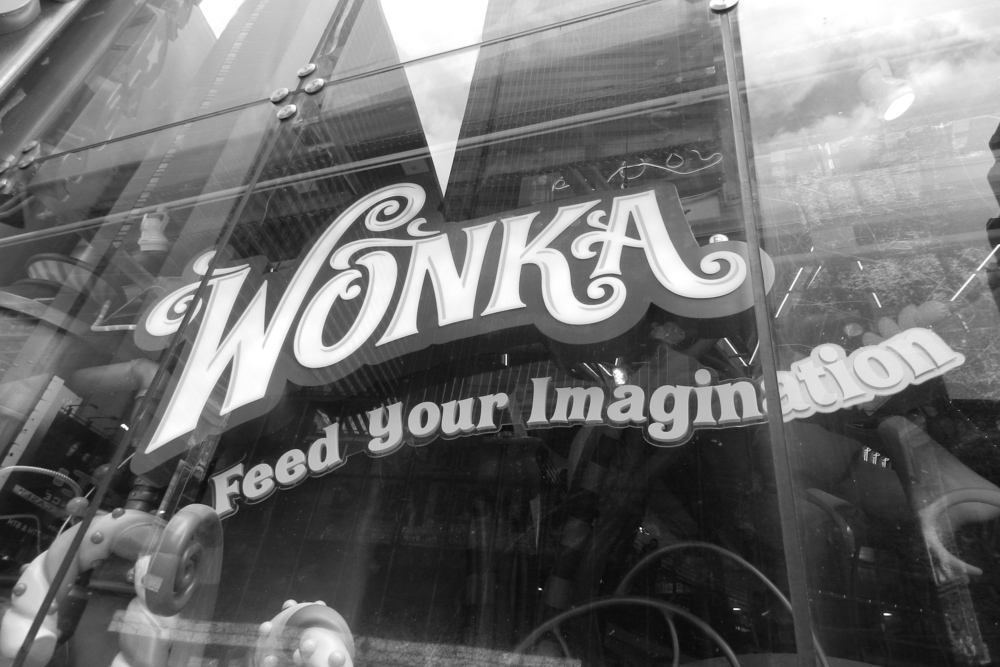Traveling (far) down memory lane, my husband and I watched the original Willy Wonka and the Chocolate Factory (starring Gene Wilder) with my son for the first time. This movie is one of my absolute favorites. I found myself singing along and laughing (as if it were my first time) when Violet swelled into a blueberry and when Charlie and his grandfather drank soda, flew to the ceiling, and burped themselves down. I cringed when Wonka threw old shoes into a batch of candy. I watched with bated breath as Charlie thought he was leaving without the lifetime supply of chocolate and surrendered the gobstopper (it gets me every time).

But hands down, my absolute favorite parts were when the Oompa Loompas graced the screen. In fact, my son has demanded, multiple times per day, that Alexa play the song sung by the Oompa Loompas, which, by the way, is entitled “Oompa Loompa Song.”
As I listened to Wonka’s explanation for how the Oompa Loompas came to live with him, I couldn’t believe what I was hearing. Apparently, in exchange for their services, the Oompa Loompas were allowed to (a) live at the factory and (b) eat all the chocolate they wanted. Furthermore, I don’t even recall seeing a non-Oompa Loompa performing services for Wonka.
Were the Oompa Loompas Independent Contractors or Employees?
In determining whether workers are independent contractors under the Fair Labor Standards Act (FLSA), different circuits apply different tests. Many circuits (including the 11th, where I live) apply a test called the “economic realities” test.
In this test, courts look to the “economic reality” of the relationship between the employer and the worker and whether that relationship demonstrates dependence. If there is dependence, it is more likely the worker is an employee. There are six factors in this test:
- The nature and degree of the employer’s control as to the manner in which the work is to be performed;
- The worker’s opportunity for profit or loss, depending upon his or her managerial skill;
- The worker’s investment in equipment or materials required for his or her task or his or her employment of workers;
- Whether the service rendered requires a special skill;
- The degree of permanency and duration of the working relationship; and
- The extent to which the service rendered is an integral part of the employer’s business.
Let’s look at these one by one.
- Wonka was an artist who was very serious about his craft. Everything was just perfect—from the edible plants (which I now know to be salad but back then thought they were candy) to the edible tea cups. It is very likely that he controlled each and every aspect of the factory, and the Oompa Loompas were simply executing the orders.
- Did the Oompa Loompas profit? Not likely, unless their wealth was counted in chocolate.
- Did the Oompa Loompas invest in the equipment? Nope, it is unlikely that the tools of the trade came from Loompaland. And those overalls and boots were totally Wonka’s style.
- Now, maybe the Oompa Loompas came with skill—but was this skill their work ethic, or did they actually make candy? (If the latter, there is an argument that this skill would lean toward independent contractor status.)
- These Oompa Loompas were likely staying with Wonka forever, especially because he saved (ahem, took) them from their home.
- Lastly, the service rendered is the sole reason Wonka is in business—to make candy.
An examination of these factors weighs heavily, if not completely, in favor of employee status.
Under the FLSA, it is axiomatic that employees are to be paid at least the minimum wage of $7.25 per hour (which sometimes is higher in certain states and localities) for their work. Therefore, Wonka might be in trouble for paying his employees in candy.
In the words of our dear friends, “Oompa loompa doompety dee, Wonka needs employment counsel immediate-ly!”


